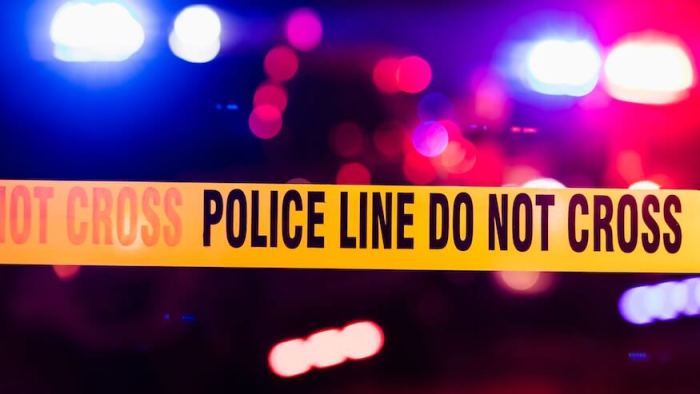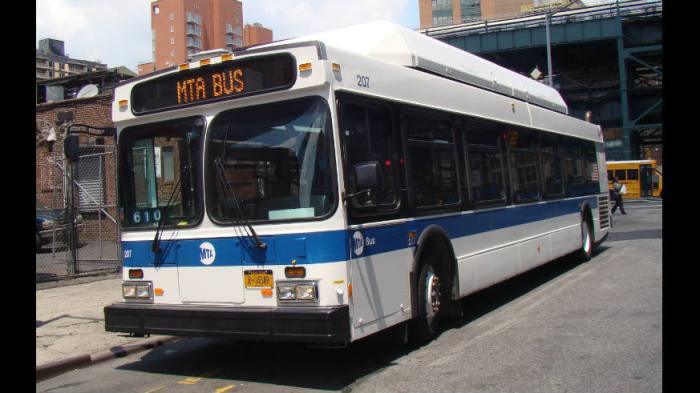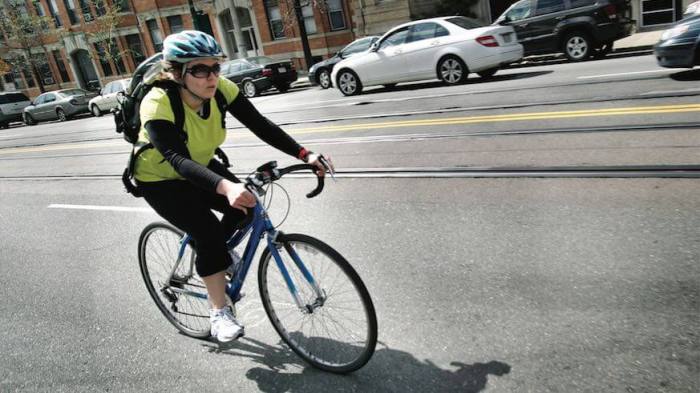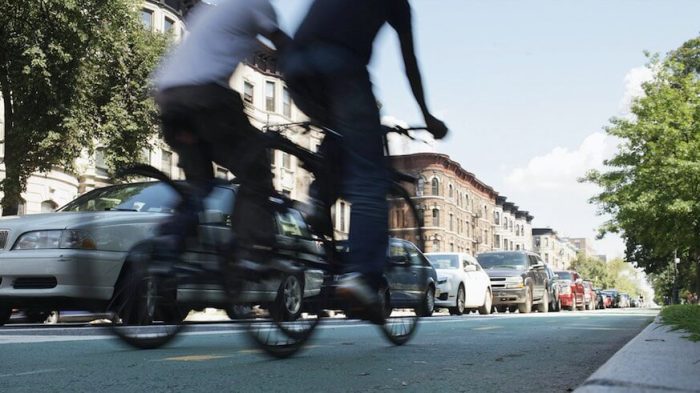The MBTAhas joined forces withUber and Lyft to create a paratransit pilot program to increase accessibility fordisabled passengers throughout the city.
Gov. Charlie Baker announced the partnership Friday at the Perkins School for the Blind in Watertown, along with Massachusetts Department of Transportation Secretary and CEO Stephanie Pollack, MBTA managers, disability advocates, and Uber and Lyft executives. “The reliability of our transportation system depends on the MBTA’s ability to improve its core infrastructure and provide efficient, innovative transit options that meet the needs of the system’s one million daily riders,” Baker said in a statement. “This initiative represents the MBTA’s efforts to increase accessibility in a more cost-effective and efficient way that also delivers more convenient service for its paratransit customers.” The On-Demand Paratransit Pilot Program will deliver customers of the MBTA’sThe RIDE service more easily and often without previous scheduling limitations. Currently, RIDE passengers have to book their trips with a minimum of one day advance notice. “Independent, reliable transportation is critical for people with disabilities to get to work, school or other community activities on time,” said Dave Power, President and CEO of Perkins School for the Blind, in a release. “Para-transit riders can now access the same on-demand services enjoyed by people without disabilities — bringing us another step closer to inclusive public transportation.” The pilot program also focuses on offering more efficient and cost-effective services. Currently, RIDE service comes at a variable cost of $31 to the MBTA and a $3.15 set fare for customers. Pilot participants will pay the first $2 of their trip while the MBTA then picks up the next $13 of the ride. Any remaining trip costs will go back to the customer. The transit authority and Baker’s office have called this partnership the “first of its kind.”
“This pilot takes a major step toward providing the kind of flexibility, responsiveness and on-demand customer service that has been the focus of our reforms, and that our paratransit riders deserve, ” Pollack said in a statement. Pilot program participants can call for a ride through the smartphone apps or, if you don’t have a smartphone,through a phone-in option that Lyft is providing.
Lyftwill also partner with a local Americas with Disabilities Act/Non-Emergency Medical Transportation form to provide wheelchair accessible rental vehicles to Lyft drivers. The MBTA will offer an additional $12 per completed trip to those Lyft drivers operating a wheelchair accessible rental in order to create an incentive for more ofthose vehicles on the road. Drivers will undergo third-party safety screenings, vehicle and criminal background record checks,according to the state. They’ll also receive educational materials on how to provide service to RIDE customers with accessibility needs, and both Uber and Lyft will offer training sessions for their drivers to better serve pilot customers. About 60 percent of RIDE users are over 65 andcurrently, The RIDE provides an average of 7,000 daily trips. That number is expected to increase as the senior population grows. Because The RIDE’s costs have gone up recently, Carolyn Villers, executive director of the Massachusetts Senior Action Council, said that it was important to explore new options to meet seniors’transportation needs while remaining cost-effective. RIDE customers interested in trying out the pilot program are encouraged to visit the MBTA’s website and sign up with both Uber and Lyft.RIDE-eligible users approved for the pilot will receive app access to request on-demand services. “This collaborative effort between the MBTA, our partners at Uber and Lyft, Perkins, and so many others shows how we can use private market innovation and emerging technology to enhance service and accessibility for our riders,” said Interim MBTAGeneral Manager BrianShortsleeve in a statement. “The MBTA will continue to explore opportunities like these to reduce costs and provide flexible transit options while investing in the core system.”
MBTA teams up with Uber, Lyft for paratransit pilot to make transportation more accessible
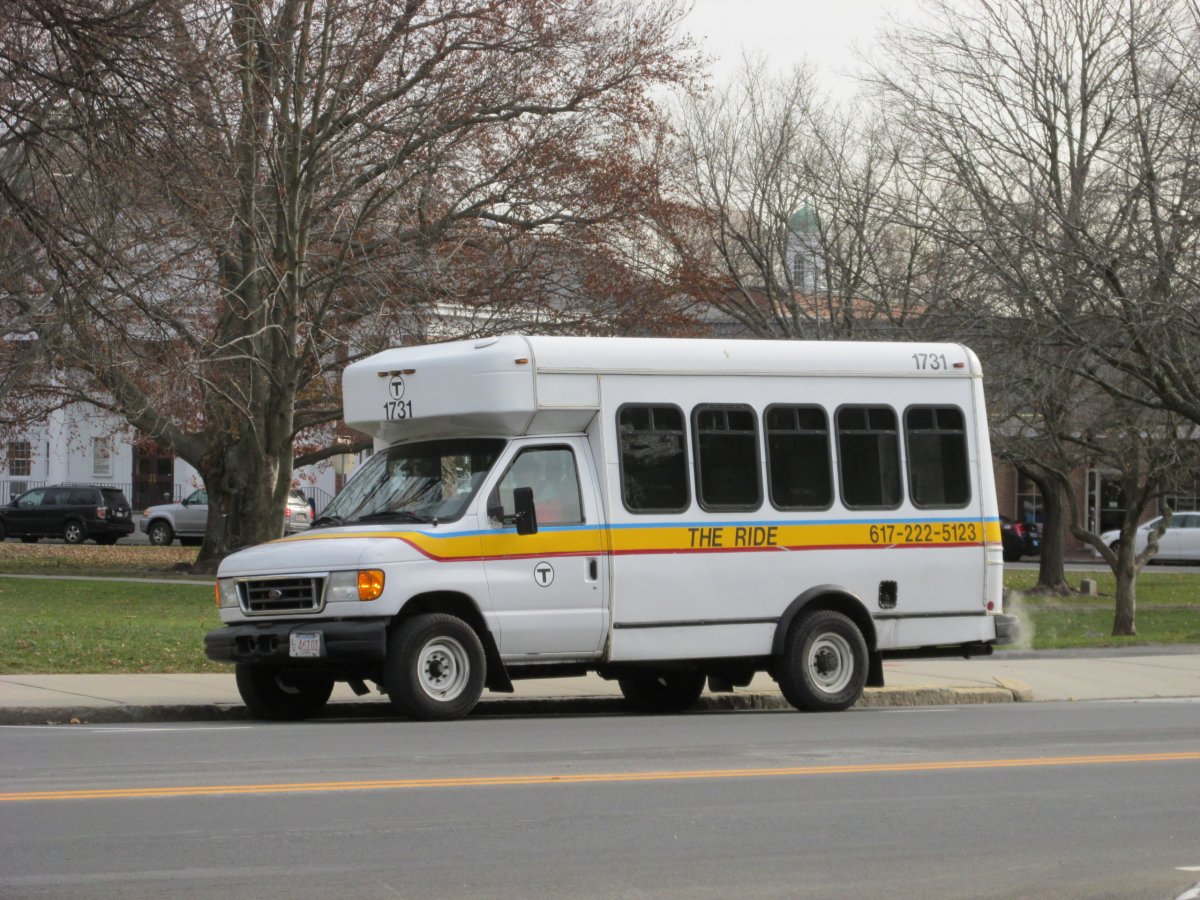
John Phelan/Wikimedia Common










